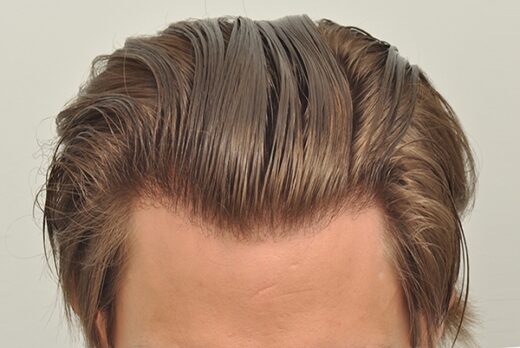If you are considering a hair transplant as a solution for hair loss, one of the biggest questions on your mind is likely: How long will my results last? This guide will provide a detailed breakdown of what to expect from a hair transplant, how long the results typically endure, and what steps you can take to maintain your newly restored hair for as long as possible.

Understanding Hair Transplant Longevity
A hair transplant is designed not only to restore lost hair but also to encourage long-term growth. On average, transplanted hair can last around 10 years, but with proper aftercare and maintenance, there’s no reason it can’t last a lifetime.
How Long Will a Hair Transplant Last?
One of the most frequently asked questions from potential patients revolves around the appearance and durability of a hair transplant. The truth is, there is no universal answer—every individual’s experience is unique.
A quick online search might tell you that hair transplant results typically last “around 10 years” or even “a lifetime”. However, the key takeaway is that individual factors like genetics, lifestyle choices, and post-surgery care play a crucial role in determining how long your results will last.
Since no two patients have identical hair loss patterns or responses to treatment, there is always some variation. Understanding both the benefits and potential limitations of a hair transplant will help you manage your expectations and plan for long-term hair care.
Pros and Cons of a Hair Transplant
Advantages:
- Restores a natural-looking hairline and fills in thinning or bald areas.
- A long-term solution compared to temporary treatments like topical solutions or PRP therapy.
- Boosts self-confidence and enhances personal image.
Potential Drawbacks:
- Requires commitment to aftercare. While hair transplants are permanent, natural hair loss can still continue. To maintain results, patients may need to follow a post-surgery treatment plan.
- Financial investment. Apart from the cost of the surgery, some patients might need additional medications like finasteride or minoxidil to prevent further hair thinning.
If you’re spending your hard-earned money on a transplant, it’s wise to consider the long-term costs, including medications and maintenance treatments, to ensure lasting results.
Does the Hair Transplant Method Affect Longevity?
No, the method used in your hair transplant does not determine how long the results will last. However, it does impact recovery time and potential scarring.
Comparison of Hair Transplant Techniques:
- FUE (Follicular Unit Extraction) & DHI (Direct Hair Implantation)
- Hair follicles are extracted individually from the donor area and implanted into the balding regions.
- Healing occurs within two weeks, and full results typically appear within 12 to 18 months.
- No linear scarring, making it a preferred option for those who wear short hairstyles.
- FUT (Follicular Unit Transplantation)
- A strip of hair-bearing skin is removed from the back of the head, and follicles are extracted for transplantation.
- Leaves a permanent linear scar in the donor area.
- The growth results are similar to FUE and DHI.
Regardless of the method, the long-term survival of transplanted hair is not affected—the primary difference is the healing process and post-surgery appearance of the donor area.
Factors That Influence Hair Transplant Success
Even though a hair transplant offers one of the most effective ways to address hair loss, certain factors can influence how well the results hold up over time.
1. Surgeon & Clinic Choice
The quality of your results depends largely on the expertise of the surgeon and clinic you choose. It’s crucial to:
- Select a clinic that meets strict medical regulations (e.g., CQC-registered clinics).
- Ensure the surgeon is board-certified and experienced.
- Confirm that the doctor performs most of the procedure, rather than delegating it entirely to technicians.
An experienced surgeon ensures:
- Precise hair follicle placement for a natural look.
- Comprehensive aftercare support to guide you through the healing process.
- Access to the latest hair growth treatments (e.g., finasteride, PRP, low-level laser therapy).
2. Age of the Patient
- Younger patients may continue to experience hair loss even after a transplant due to genetic factors.
- To minimize future hair thinning, doctors often recommend DHT-blocking medications like finasteride or dutasteride.
- If not managed properly, some younger patients may require a second transplant later in life.
3. Hairstyling Habits
The way you style your hair after a transplant can impact its longevity.
- Avoid tight hairstyles like ponytails, braids, or dreadlocks, which can lead to traction alopecia (hair loss due to excessive tension).
- Allow hair to grow naturally without excessive pulling or styling stress.
How to Prevent Future Hair Loss After a Transplant
Hair transplants restore existing lost hair, but they do not stop ongoing hair loss. To maintain results for as long as possible, patients should consider complementary treatments.
1. DHT-Blocking Medications (Finasteride & Dutasteride)
- These prescription medications help prevent future hair loss by blocking the hormone dihydrotestosterone (DHT), which causes hair follicles to shrink and fall out.
- They are cost-effective, easy to use, and highly effective in maintaining results after surgery.
2. Minoxidil (Topical Hair Growth Treatment)
- Minoxidil is an over-the-counter topical solution that stimulates blood flow to the scalp, promoting healthier hair growth.
- It can be used alone or combined with finasteride for enhanced results.
- Ideal for female patients or those who cannot take DHT-blocking medications.
3. PRP Therapy (Platelet-Rich Plasma)
- This treatment involves injecting plasma from the patient’s own blood into the scalp to stimulate hair growth.
- While effective, PRP can be costly, with prices ranging from $300 to $1000 per session.
- Best used as a supplementary treatment rather than a replacement for medications.
4. Proper Hair Care Routine
- Use high-quality, sulfate-free shampoos to prevent irritation.
- Avoid harsh chemical treatments (bleaching, excessive heat styling).
- Maintain a nutrient-rich diet to support healthy hair growth.
Final Thoughts: Will My Hair Transplant Last Forever?
One of the most common questions patients ask is whether their transplant will last a lifetime. The answer depends on a combination of factors, including genetics, age, surgeon expertise, and post-surgery care.
The good news? A well-performed hair transplant can last for decades if the patient follows proper aftercare. Taking steps such as using hair loss medications, avoiding damaging hairstyles, and maintaining a healthy scalp routine will significantly improve long-term results.
For the best outcome, choose an experienced surgeon, follow a solid aftercare routine, and stay proactive in maintaining your hair health. By doing so, you can enjoy the benefits of your transplant for many years to come.
Why Choose Erdem Hospital for Your Hair Transplant?

When it comes to hair transplantation, choosing the right clinic is just as important as the procedure itself. With years of expertise in advanced hair restoration techniques, Erdem Hospital stands out as a trusted name in the industry. Here’s why patients from all over the world choose Erdem Hospital for their hair transplant journey:
1. Expert Surgeons & Advanced Techniques
Erdem Hospital’s board-certified specialists use the latest FUE and DHI techniques for natural, long-lasting results.
2. State-of-the-Art Facilities
Our modern, fully accredited hospital meets international medical standards, ensuring a safe and sterile environment.
3. Personalized Treatment Plans
Each patient receives a customized treatment plan tailored to their hair type, degree of hair loss, and personal goals.
4. Comprehensive Aftercare Support
We provide detailed post-surgery care, including consultations and expert guidance to maintain your results for years.
5. Affordable & All-Inclusive Packages
With competitive pricing, Erdem Hospital offers cost-effective hair transplant packages, including accommodation, transportation, and follow-up care.
Choose Erdem Hospital for trusted expertise, outstanding results, and world-class patient care. Your hair, your confidence—restored!